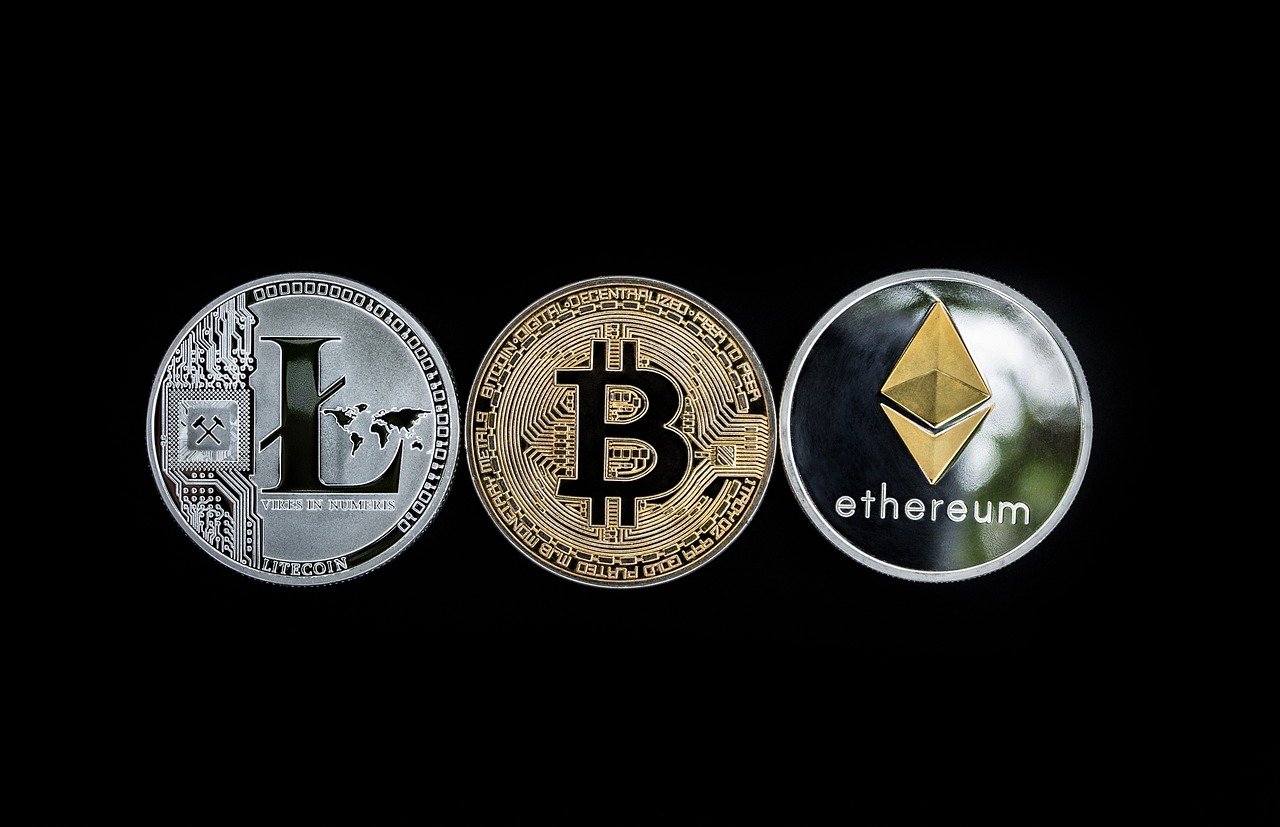
Introduction to the SEC Charges
On October 10, 2023, the U.S. Securities and Exchange Commission (SEC) announced charges against Mango Markets, a decentralized finance platform. The charges stem from allegations that Mango Markets engaged in the unregistered sale of securities through its crypto token offerings. The SEC’s actions are part of a broader effort to regulate the rapidly evolving cryptocurrency sector and ensure that companies comply with federal securities laws.
The charges against Mango Markets highlight the ongoing scrutiny that the cryptocurrency industry faces from regulatory bodies. The SEC claims that the platform failed to register its token offerings, which constitutes a violation of the Securities Act of 1933. This regulatory approach emphasizes the importance of legal compliance in the cryptocurrency space, where many platforms operate in a fluctuating regulatory environment. The SEC has consistently expressed its commitment to protecting investors and maintaining fair markets, which underscores the significance of these charges.
This case is particularly notable as it exemplifies the SEC’s intensified focus on initial coin offerings (ICOs) and other token sales that may be classified as securities. The legal framework for cryptocurrencies is still developing, and the SEC’s actions against Mango Markets signal that regulatory clarity is becoming paramount for companies operating in this sphere. By holding Mango Markets accountable, the SEC aims to deter similar practices in the future and promote a more transparent and stable marketplace for digital assets.
Understanding these charges is essential for stakeholders in the cryptocurrency industry, as they reflect the potential legal risks associated with non-compliance. Businesses engaged in token sales must navigate the complexities of federal laws to avoid similar actions against them. The implications of the SEC’s decision extend beyond Mango Markets, as they may set a precedent for future regulatory actions within the cryptocurrency sector.
Overview of Mango Markets
Mango Markets is a decentralized exchange that operates within the burgeoning cryptocurrency trading ecosystem, catering to users who seek innovative trading solutions. It integrates the advantages of both centralized and decentralized trading platforms, enabling users to engage in trades with a high level of efficiency, liquidity, and anonymity. Employing an automated market-making model, Mango Markets allows for limit orders, market orders, and even lending protocols—all executed on a blockchain network.
The unique selling proposition of Mango Markets lies in its dual-token system, which differentiates it from many other trading platforms. By utilizing the MNGO token, users can engage in governance decisions regarding the platform’s future and enhancements. This participatory approach not only empowers the community but also helps maintain a disciplined and decentralized governing structure. Users can participate in yield farming, lending, or simply trading various cryptocurrencies, thus benefiting from multiple financial avenues.
The user base of Mango Markets ranges from novice traders to professional institutions, drawn by its commitment to offering a transparent trading environment. Users appreciate that transactions are secured through smart contracts, drastically reducing the potential for centralized fraud and operational downtimes typical in many traditional exchanges. Furthermore, the platform boasts a user-friendly interface that enables a seamless trading experience, enhancing engagement among traders.
Additionally, Mango Markets introduces features such as cross-margin trading and advanced charting tools, which further optimize the trading experience. With its focus on security, user governance, and multifunctionality, Mango Markets is positioned competitively in the cryptocurrency landscape, appealing to a wide array of users seeking comprehensive trading services. The platform’s innovative approach is indicative of the evolving nature of decentralized finance and cryptocurrency trading.
The Unregistered Crypto Token
The recent charges brought forth by the US Securities and Exchange Commission (SEC) against Mango Markets center around their offering of a specific digital asset token, which has drawn considerable attention within the crypto community. This token was characterized by its functionality within the Mango Markets ecosystem, facilitating trading and providing users with incentives for participation. However, the core issue lies in the fact that this token was offered without undergoing the official registration process mandated by federal law.
Marketing strategies employed by Mango Markets to promote this digital asset token raised questions about its regulatory classification. Prospective investors were attracted by the potential returns and innovative opportunities promoted in advertisements and on various digital platforms. Nevertheless, the absence of regulatory oversight led to significant implications, not only for the platform itself but also for investors who may not have been adequately informed about the risks involved with unregistered tokens.
The SEC’s charges highlight the essential process of token registration, which is designed to ensure that potential investors receive all pertinent information regarding the associated risks and benefits. Registration serves as a protective measure that obligates issuers to disclose critical information, such as financial statements and management details, thereby fostering transparency in the cryptocurrency market. Moreover, compliance with these regulations is crucial in maintaining market integrity and safeguarding participants from potential fraud or loss associated with unregulated offerings.
As the landscape of cryptocurrency continues to evolve, understanding the importance of adhering to regulatory guidelines in token offerings is paramount. This case emphasizes the pressing need for all entities operating in the digital asset space to be fully compliant with SEC regulations, ensuring that both issuers and investors are protected as they navigate the complexities of the crypto market.
Legal Implications of the SEC Charges
The recent charges filed by the United States Securities and Exchange Commission (SEC) against Mango Markets have raised significant legal concerns regarding the operation of the cryptocurrency market. The SEC alleges that Mango Markets conducted unregistered sales of crypto tokens, which can lead to serious penalties, including fines and potential restrictions on future operations. Such consequences could hinder the company’s ability to attract new investors and maintain its existing user base, ultimately impacting its market position.
A key area of focus is the effect of these charges on the company’s leadership. If the SEC finds wrongdoing on the part of Mango’s executives, they could face not only administrative actions but also personal liability. This could involve hefty fines and even bans from serving as an officer or director in a public company, which could further destabilize the existing management structure. The broader implications of these penalties extend not just to the individuals directly involved, but potentially to the overall governance of the company itself.
For investors, the legal ramifications of the SEC’s actions can be alarming. A formal investigation may erode investor confidence, leading to a potential decline in the value of any tokens associated with Mango Markets. Investors may be forced to reevaluate their investment strategies in the face of this newfound uncertainty, considering whether the potential for returns is worth the risks highlighted by the SEC’s charges.
Additionally, these developments underscore the importance of regulatory compliance within the cryptocurrency sector. Proper adherence to SEC regulations is essential for sustaining operational legitimacy and fostering an environment conducive to investment. As the regulatory landscape continues to evolve, companies in the cryptocurrency space must navigate these complexities carefully to avoid similar allegations or penalties. The ongoing scrutiny from the SEC highlights the critical nature of compliance in ensuring the long-term viability of crypto enterprises.
Reactions from the Crypto Community
The recent charges brought against Mango Markets by the U.S. Securities and Exchange Commission (SEC) have sparked a variety of reactions within the cryptocurrency community. Stakeholders, including other exchanges, blockchain enthusiasts, and legal analysts, have taken to social media, forums, and blogs to express their viewpoints. The overall sentiment appears to range from concern over regulatory oversight to advocacy for clearer guidelines.
Several cryptocurrency exchanges have voiced their apprehension regarding the implications of the SEC’s actions. A prominent exchange representative mentioned that such enforcement actions emphasize the need for enhanced regulatory clarity in the sector. This sentiment resonates with many crypto leaders who argue that unpredictable regulatory frameworks can stifle innovation. The fear is that increased scrutiny may lead to a chilling effect, potentially driving projects away from the U.S. and toward more crypto-friendly jurisdictions.
On the other hand, blockchain advocates argue that regulatory enforcement is crucial for protecting investors and ensuring market integrity. They assert that the SEC’s intervention may ultimately bolster the industry’s credibility, beneficially distinguishing legitimate projects from those that aim to defraud investors. This perspective indicates a growing maturity within the crypto sector, with a recognition that regulation may help in establishing a safer operational environment for all participants.
Legal experts have also weighed in on the situation, noting that the SEC’s actions might serve as a precedent for future cases involving cryptocurrency. They emphasize the importance of understanding how regulators will interpret existing laws in the context of digital currencies. Some speculate that this case could catalyze more defined regulations, influencing how tokens are marketed and sold in the future, reassuring consumers while aligning with traditional financial norms. Overall, reactions from the cryptocurrency community underscore a multifaceted approach to evaluating regulatory actions and their potential repercussions on the market.
Comparison with Other Regulatory Actions
The recent charges brought by the US Securities and Exchange Commission (SEC) against Mango Markets for unregistered crypto token sales add to a growing list of regulatory actions targeting crypto businesses. This case is particularly significant as it exemplifies the SEC’s increasing scrutiny in the rapidly evolving cryptocurrency sector. Comparing the Mango Markets case with other recent regulatory actions, like those involving Bitconnect and Telegram, provides essential insights into the SEC’s approach to crypto regulation.
Similar to the Mango Markets case, the SEC’s action against Bitconnect in 2020 highlighted unregistered token sales which misled investors through an apparent ponzi scheme, leading to substantial financial losses. The regulator acted decisively, arguing that the cryptocurrencies offered by Bitconnect constituted unregistered securities. This set a precedent for the SEC to take a more rigorous stance on enterprises not only offering tokens but also marketing them without adhering to requisite legal frameworks.
Another notable regulatory instance occurred with Telegram’s TON project, where the SEC filed charges in 2019 regarding the sale of unregistered digital tokens. Telegram, like Mango Markets, faced scrutiny for not registering their tokens as securities, ultimately resulting in a settlement. These actions underscore a pattern where the SEC appears to be firming up its stance against non-compliance, reflecting a broader intent to establish clearer regulatory boundaries in the cryptocurrency landscape.
This tightening of regulations indicates that the ongoing landscape for crypto businesses is becoming increasingly fraught with legal obligations. Companies now face greater risks if they conduct token sales or offer services without appropriate registrations and disclosures. Overall, these regulatory actions signal a pivotal shift in the enforcement environment surrounding cryptocurrency, marking a potential future where compliance will be paramount to avoid sharp penalties and sanctions.
Potential Outcomes and Scenarios
The U.S. Securities and Exchange Commission (SEC) has brought charges against Mango Markets, a prominent trading platform for cryptocurrencies, primarily over allegations of unregistered token sales. This situation raises several potential outcomes and scenarios that could unfold as the case progresses. One likely scenario is that Mango Markets may seek a settlement with the SEC. In many cases involving regulatory enforcement, firms often opt for a negotiated settlement to mitigate financial penalties and legal uncertainties. This could involve a monetary fine as well as commitments to enhance compliance and regulatory oversight.
Another possible outcome is ongoing litigation. If Mango Markets decides to contest the SEC’s charges, it could initiate a protracted legal battle. Such litigation may lead to public scrutiny of the SEC’s regulatory framework for cryptocurrencies and could potentially set precedents for how similar cases are handled in the future. Depending on the case’s resolution, a court ruling could either bolster or challenge the SEC’s current stance on digital asset regulation.
The repercussions of these scenarios extend beyond the confines of Mango Markets itself. A settlement or an adverse ruling could ripple across the broader cryptocurrency market, leading to increased caution among other platforms regarding compliance. This may trigger a regulatory reevaluation in the industry, potentially resulting in higher operational costs and adjustments in business models as companies strive to adhere to regulatory expectations. Furthermore, the outcome could influence investor sentiment, as stakeholders assess the implications of regulatory actions on the market’s stability.
In conclusion, the SEC’s charges against Mango Markets set the stage for numerous possible outcomes, each with distinct implications for both the platform and the wider cryptocurrency landscape. Stakeholders will be closely monitoring the developments to gauge the future trajectory of crypto regulations and market dynamics.
Significance for Investors and Market Trends
The recent charges brought against Mango Markets by the U.S. Securities and Exchange Commission (SEC) highlight a pivotal moment for both current and prospective investors in the cryptocurrency sector. These allegations regarding unregistered token sales send ripples throughout the market, prompting investors to reassess their strategies and the viability of decentralized platforms. This increased scrutiny emphasizes the need for due diligence, as investors are now more likely to question the legitimacy of projects before committing their funds.
Investor behavior is inherently influenced by regulatory developments; thus, the SEC’s actions have the potential to reshape market sentiment significantly. In the wake of these charges, cautious investors might gravitate toward more established platforms that comply with existing regulations, while those with a higher risk appetite may continue to explore emerging projects. Such shifts could lead to a more segmented market, where trust and compliance become paramount factors in investment decisions.
Furthermore, these developments may catalyze a broader trend toward regulatory clarity within the cryptocurrency landscape. As the SEC takes a firmer stance, we may witness an influx of investor interest in projects that demonstrate transparency and regulatory compliance, ultimately contributing to healthier market dynamics. Emerging trends could emphasize innovation in regulatory practices, prompting platforms to self-regulate and adopt measures that align with investor protection frameworks.
In conclusion, the SEC’s charges against Mango Markets are not merely isolated events but indicative of a larger evolving environment within the crypto market. Investors must remain vigilant, staying informed and adaptable to these regulatory shifts. The interplay between active regulatory oversight and market behaviors will be crucial as both sectors evolve alongside each other in the coming years.
Conclusion: The Future of Crypto Regulation
The recent charges brought by the United States Securities and Exchange Commission (SEC) against Mango Markets mark a significant moment in the ongoing development of cryptocurrency regulation. These actions underscore the regulators’ commitment to enforcing existing securities laws in a rapidly evolving digital asset ecosystem. As the crypto market matures, it is crucial for regulatory frameworks to adapt, ensuring that they provide adequate protection for investors while fostering an environment conducive to innovation.
One primary implication of the SEC’s charges is the clear indication that the agency is actively monitoring and scrutinizing unregistered token sales. This can serve as a wake-up call for other cryptocurrency projects, highlighting the need to enhance compliance mechanisms and prioritize transparency within their operations. The expectation that digital assets adhere to the same standards as traditional financial securities brings forth discussions about the balance between rigorous compliance and the need for continued innovation in the cryptocurrency space.
Investor protection remains a critical concern as regulatory bodies work to establish clear guidelines. The SEC’s actions suggest that as more projects emerge in the blockchain landscape, increased oversight may result in heightened security for investors. Such measures intend to prevent fraudulent practices and ensure that participants are well-informed about the risks associated with investing in cryptocurrency projects.
As we look towards the future, the resolution of the charges against Mango Markets may help shape the parameters of engagement between innovators in the digital asset realm and regulatory authorities. The establishment of a balanced approach that nurtures creativity while ensuring compliance with regulatory standards will be vital in determining the trajectory of cryptocurrency regulation and the overall health of the market in the coming years.




